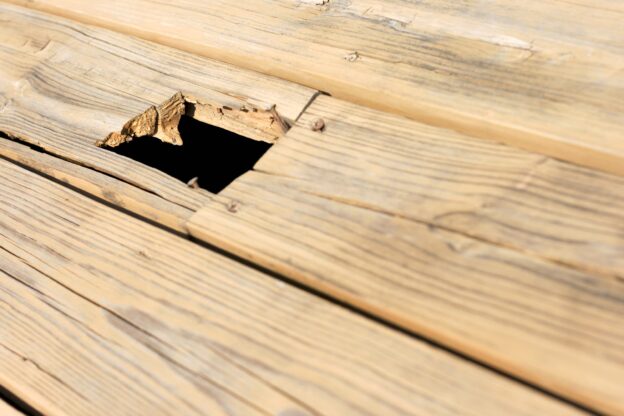Whether you live in an old or new rental house or apartment, the floors likely see a lot of wear and tear over the years. With multiple tenants coming and going, plus buildings that are getting older without receiving proper maintenance, it is very possible to suffer from a broken floor injury in your own home.
Read on to learn more about broken floor injuries and why you should contact a landlord negligence attorney if you have suffered because of a broken floor in one of your rooms.
Causes of Broken Floors
Broken floors are the cause of many slip and fall accidents in residential properties throughout New York City. Flooring can become loose and uneven over time due to poor construction, damage that a tenant has caused, or failure of a landlord to make reasonable repairs.
Cracked and peeling linoleum floors, bunched-up carpet, loose rugs, and poorly installed tiles can all cause broken floor injuries. You may also fall on a floor because of unlevel subflooring, split hardwood floors, and thresholds between rooms that are too wide or tall.
Types of Broken Floor Injury
You can be injured in many different ways because of a broken floor, depending on how you fall and the severity of the floor damage. You could sustain cuts and bruises because of your fall or even hit your head and have a concussion. Broken bones, torn ligaments, and spinal cord injuries can all result from an accident when you fall on a damaged floor.
Broken Floor Injuries Due to Landlord Negligence
If you live in a rental property and have a landlord, it’s important to know what he or she is legally required to provide to keep you safe. In addition to installing smoke and carbon monoxide detectors, securing your door with a lock, and having fire extinguishers available in common areas, landlords must also maintain a habitable building that is up to building code requirements.
As a tenant, it is your responsibility to notify your landlord when you see an issue with flooring so that he or she can address the problem. To pursue a lawsuit against your landlord for your injuries, you’ll need to be able to show that a dangerous flooring condition existed, that your landlord was aware of the condition and failed to acknowledge or repair it, and that this negligence caused you to be injured. However, if you caused your own flooring to become damaged and then were reckless and injured yourself because of that damage, it will be much more difficult, if not impractical, to pursue a case against your landlord.
Why Hire a Broken Floor Injury Attorney
There are many factors and nuances that go into bringing a landlord in New York City to justice because of a flooring issue in a rental space. At the Law Office of Jeffrey K. Kestenbaum, we have helped many tenants pursue these types of cases and be successful in receiving monetary compensation to help pay for their medical bills, pain and suffering, and lost wages from missed work.
We are experienced in all types of personal injury matters but are particularly experienced with broken floor injury cases where landlords are partially or fully to blame for incidents. We can help you determine whether you have a valid claim and who the negligent party is who caused your slip and fall. Contact us online or by phone at 718-237-5586 to tell us more about your flooring-related accident and for a free and confidential legal consultation.







